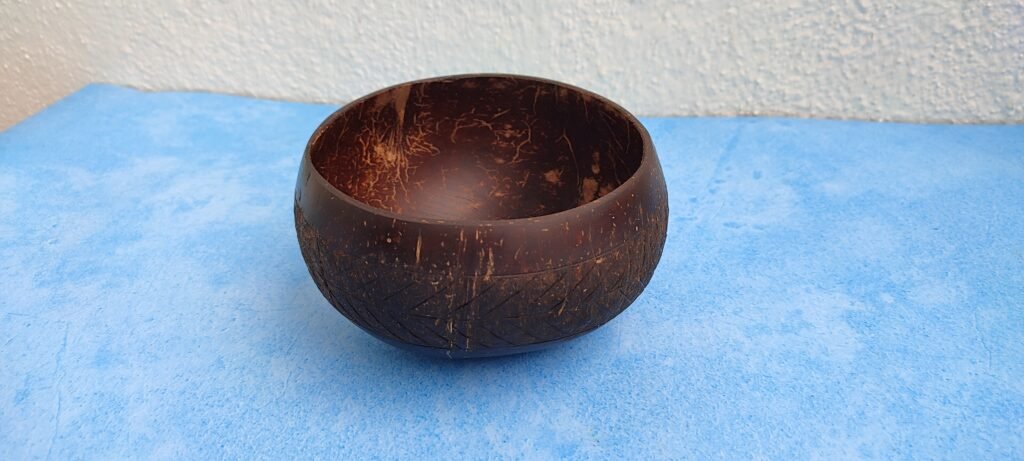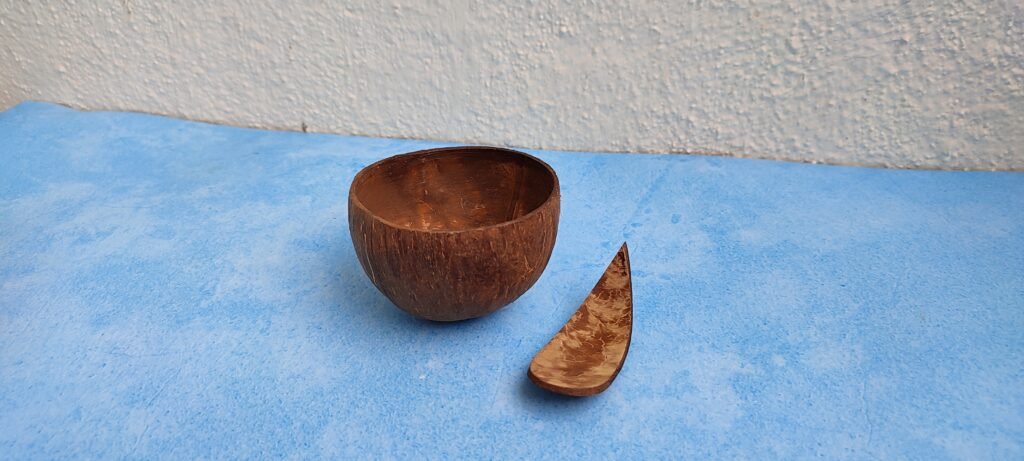While celebrating World 🌍 Coconut 🥥 Day Today, We need to understand the uses of Coconut in different application other than Food. There are many uses of each part of Coconut Tree. Coconut can bring a big revolution in sustainable products in near future.
🥥 Coconut materials are emerging as sustainable alternatives to plastic, ceramic, and metal products. Here’s how they can replace these conventional materials.

Environmental Benefits
Sustainable Sourcing:
Coconut bowls and utensils are made from discarded coconut shells, which are a byproduct of the coconut industry. This practice not only utilizes waste but also reduces the demand for non-renewable resources typically used in the production of plastics and ceramics.
Biodegradability:
Unlike plastic, coconut shells are biodegradable and compostable. When they reach the end of their life, they break down naturally, contributing to soil health rather than polluting the environment. This is a significant advantage over plastic, which can take hundreds of years to decompose.
Low Energy Production:
The handcrafted production of coconut bowls requires significantly less energy compared to the mass manufacturing processes of plastic and ceramic products. This reduced energy consumption leads to lower greenhouse gas emissions and less environmental pollution.
Made from Coconut Waste –
Coconut shells are a byproduct of the coconut industry, with over 50 billion coconuts produced annually worldwide. Repurposing these discarded shells into useful products helps reduce waste and mitigate environmental pollution.
This will help to reduce extracting minerals from the soil.



Functional Properties
Durability:
Coconut bowls are robust and resistant to breakage, making them suitable for everyday use. They can serve as functional kitchenware, comparable to ceramic and metal options, without the associated environmental costs.
Natural Insulation:
Coconut materials have good thermal insulation properties, which can be beneficial for serving hot foods without transferring heat to the hands, similar to some ceramic and metal products.
Versatility in Applications:
Beyond kitchenware, coconut shells can be processed into composite materials that enhance the properties of plastics. For example, incorporating coconut shell particles into plastic composites can improve strength and reduce environmental impact, making them suitable for various industrial applications.
Health and Safety
Chemical-Free:
Coconut bowls are made without harmful chemicals, making them safe for food contact. This contrasts with some plastic products that may leach harmful substances into food.
Nutritional Benefits:
Coconut shell products can retain beneficial nutrients, promoting gastrointestinal health when used for serving food.
In summary, coconut materials present a compelling alternative to plastic, ceramic, and metal, offering sustainability, functionality, and health benefits while reducing environmental impact.
